

| Sr. No. | Products | IS Standard | Remark |
|---|---|---|---|
| 1 | 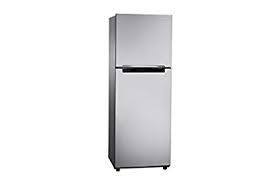 Frost-Free Refrigerators |
IS 15750, Schedule - 1 | As an AI language model, I cannot register a BEE (Bureau of Energy Efficiency) rating for frost-free refrigerators. However, I can provide you with some information on the BEE rating and how it is applicable to frost-free refrigerators. The BEE is an Indian government agency that rates the energy efficiency of various appliances, including refrigerators, based on their power consumption. The rating system ranges from one to five stars, with a higher rating indicating better energy efficiency. Frost-free refrigerators are designed to automatically defrost themselves, which can result in higher energy consumption compared to manual defrost refrigerators. However, manufacturers can optimize the design and components of the refrigerators to improve their energy efficiency and achieve a higher BEE rating. |
| 2 | 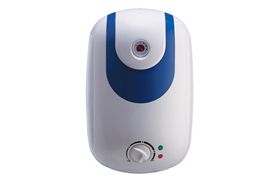 Stationary Storage Type Electric Water Heater / Electric Geysers |
IS 2082, Schedule - 10 | In general, BEE (Bureau of Energy Efficiency) registration is mandatory for certain types of electrical appliances sold in India, including electric water heaters or geysers. As per the BEE's guidelines, electric water heaters/geysers with a rated capacity of up to 50 liters fall under the scope of mandatory BEE registration. Therefore, manufacturers must obtain BEE registration before selling these appliances in India. The purpose of BEE registration is to ensure that the products meet the minimum energy efficiency standards set by the government, and thereby help consumers save energy and reduce their electricity bills. It also promotes the use of energy-efficient appliances, which is beneficial for the environment. |
| 3 | 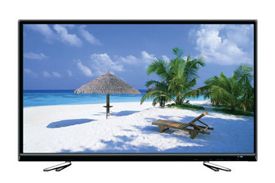 Color Television (Color TV / Smart TV) |
IS 616, IS 13384 (Part 1 and Part 2) and IS 13900 for CRT’s, Schedule - 11 | BEE (Bureau of Energy Efficiency) registration is mandatory for Color Television (Color TV/Smart TV) sold in India. As per the BEE's guidelines, all color televisions with a display screen size of up to 32 inches are required to obtain BEE registration before they can be sold in the Indian market. This includes both non-smart and smart TVs. The purpose of BEE registration is to ensure that the products meet the minimum energy efficiency standards set by the government, and thereby help consumers save energy and reduce their electricity bills. It also promotes the use of energy-efficient appliances, which is beneficial for the environment. |
| 4 | 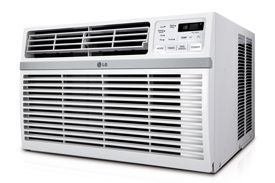 Room Air Conditioner (Variable Speed / Fixed Speed) |
IS 1391 Part 1 and Part 2, Schedule - 3 | BEE (Bureau of Energy Efficiency) registration is mandatory for Room Air Conditioners (both variable speed and fixed speed) sold in India. As per the BEE's guidelines, all room air conditioners up to a cooling capacity of 10,465 watts (2.97 TR) fall under the scope of mandatory BEE registration. The BEE provides star ratings for room air conditioners based on their energy efficiency. The higher the star rating, the more energy-efficient the air conditioner is. Manufacturers must obtain BEE registration before selling their room air conditioners in India. The purpose of BEE registration is to ensure that the products meet the minimum energy efficiency standards set by the government, and thereby help consumers save energy and reduce their electricity bills. It also promotes the use of energy-efficient appliances, which is beneficial for the environment. |
| 5 | 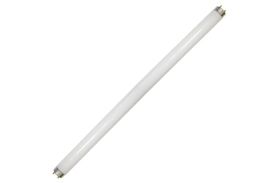 Tubular Fluorescent Lamps |
IS 2418 Part 1 and Part 2, Schedule - 2 | BEE (Bureau of Energy Efficiency) registration is mandatory for Tubular Fluorescent Lamps (TFL) sold in India. As per the BEE's guidelines, all TFLs, including straight and U-shaped lamps with a wattage of 20 watts or more, fall under the scope of mandatory BEE registration. Manufacturers must obtain BEE registration before selling their TFLs in India. The purpose of BEE registration is to ensure that the products meet the minimum energy efficiency standards set by the government, and thereby help consumers save energy and reduce their electricity bills. It also promotes the use of energy-efficient appliances, which is beneficial for the environment. |
| 6 | 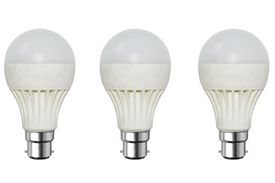 LED Lamps |
IS 16102 Part 2, IS 16106 and 14700 (Part 3 / Sec 2), Schedule - 20 | BEE (Bureau of Energy Efficiency) registration is mandatory for LED (Light Emitting Diode) Lamps sold in India. As per the BEE's guidelines, all LED lamps, including bulbs, tubes, and down lights, fall under the scope of mandatory BEE registration. Manufacturers must obtain BEE registration before selling their LED lamps in India. The purpose of BEE registration is to ensure that the products meet the minimum energy efficiency standards set by the government, and thereby help consumers save energy and reduce their electricity bills. It also promotes the use of energy-efficient appliances, which is beneficial for the environment. |
| 7 | 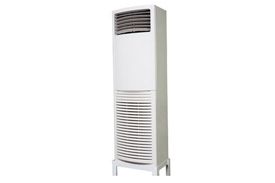 Room Air Conditioners (Cassette, Floor Standing Tower, Ceiling, Corner AC) |
IS 1391 Part 2, Schedule - 3A | Room air conditioners such as Cassette, Floor Standing Tower, Ceiling, and Corner AC are eligible for BEE registration and star rating. The rating system ranges from 1 to 5 stars, with 5 being the most energy-efficient. The BEE star rating is based on the Energy Efficiency Ratio (EER) or the Indian Seasonal Energy Efficiency Ratio (ISEER) of the air conditioner. To register for BEE star rating, the manufacturer of the air conditioner must submit the necessary documents and samples of the product to BEE for testing. The testing is conducted by BEE-approved laboratories, and the results are used to determine the star rating of the air conditioner. Once the star rating is assigned, the manufacturer can use the BEE star label on their product. The BEE star rating system for room air conditioners has been in place since 2006 and has helped to promote energy-efficient appliances in India. The rating system has also made it easier for consumers to choose energy-efficient air conditioners and has incentivized manufacturers to produce more energy-efficient models. In conclusion, BEE registration and star rating for room air conditioners such as Cassette, Floor Standing Tower, Ceiling, and Corner AC is a voluntary labeling program that promotes energy efficiency and conservation in the air conditioning industry. The star rating system has made it easier for consumers to choose energy-efficient air conditioners and has incentivized manufacturers to produce more energy-efficient models. |
| 8 | 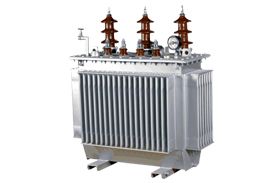 Distribution Transformer |
IS 1180 Part 1, IS 2026 (Part1, Part 2 and Part 3) and IS 2500 Part-1, Schedule - 4 | Distribution transformers are a critical component of the power distribution network and play a crucial role in delivering electricity to consumers. The Bureau of Energy Efficiency (BEE) is an Indian government agency that promotes energy efficiency and conservation in various sectors. One of the ways BEE encourages energy efficiency in the power sector is through its star rating system for distribution transformers. The BEE star rating system for distribution transformers was launched in 2010 and is a voluntary labeling program that rates the energy efficiency of transformers. The rating system ranges from 1 to 5 stars, with 5 being the most energy-efficient. The BEE star rating is based on the transformer's losses, which are measured as a percentage of its rated capacity. The BEE star rating system for distribution transformers was launched in 2010 and is a voluntary labeling program that rates the energy efficiency of transformers. The rating system ranges from 1 to 5 stars, with 5 being the most energy-efficient. The BEE star rating is based on the transformer's losses, which are measured as a percentage of its rated capacity. |
| 9 | 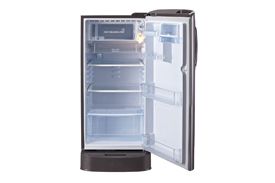 Direct Cool Refrigerators |
IS 1476 Part 1, Schedule - 5 | BEE (Bureau of Energy Efficiency) registration is mandatory for Direct Cool Refrigerators sold in India. As per the BEE's guidelines, all direct cool refrigerators up to a storage capacity of 800 liters fall under the scope of mandatory BEE registration. Manufacturers must obtain BEE registration before selling their direct cool refrigerators in India. The purpose of BEE registration is to ensure that the products meet the minimum energy efficiency standards set by the government, and thereby help consumers save energy and reduce their electricity bills. It also promotes the use of energy-efficient appliances, which is beneficial for the environment. The BEE provides star ratings for direct cool refrigerators based on their energy efficiency. The higher the star rating, the more energy-efficient the refrigerator is. It is advisable to check with the manufacturer or supplier of the direct cool refrigerator to ensure that the product has the necessary BEE registration and star rating before making a purchase. The BEE registration label should be displayed on the product or its packaging to confirm that it meets the energy efficiency standards set by the government. |
| 10 | 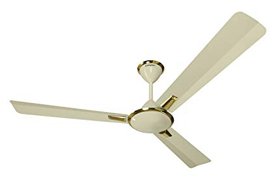 Ceiling Fans |
IS 374 and Schedule 8 | The purpose of BEE registration is to ensure that the products meet the minimum energy efficiency standards set by the government, and thereby help consumers save energy and reduce their electricity bills. It also promotes the use of energy-efficient appliances, which is beneficial for the environment. The BEE provides star ratings for ceiling fans based on their energy efficiency. The higher the star rating, the more energy-efficient the fan is. It is advisable to check with the manufacturer or supplier of the ceiling fan to ensure that the product has the necessary BEE registration and star rating before making a purchase. The BEE registration label should be displayed on the product or its packaging to confirm that it meets the energy efficiency standards set by the government. |
| 11 |  Computer (Notebook / Laptops) |
Schedule 14 | However, if your business deals with the sale or distribution of computers or laptops, you may be required to comply with BEE regulations to participate in certain government contracts or to qualify for certain benefits. In this case, you would need to ensure that your business meets the BEE requirements in terms of ownership, management control, skills development, enterprise and supplier development, and socio-economic development. To register for BEE certification, you would need to select an accredited BEE verification agency to assess your compliance level and issue a BEE certificate. The verification process involves submitting documents and evidence to demonstrate compliance with the BEE requirements. Once you have received a BEE certificate, you can use it to demonstrate your compliance level to potential customers, investors, or partners. It's important to note that BEE certification is not mandatory for all businesses, but it may be required in certain industries or for certain types of contracts. It's recommended to consult with a BEE expert or a qualified verification agency to determine your business's specific requirements for BEE compliance. |
| 12 | 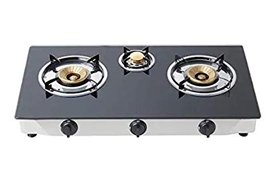 Domestic Liquefied Petroleum Gas(LPG) Stoves |
IS 4246 and Schedule 9 | BEE stands for Bureau of Energy Efficiency, which is a government agency in India responsible for promoting energy efficiency and conservation. BEE registration is required for certain appliances to ensure that they meet energy efficiency standards. For domestic Liquefied Petroleum Gas (LPG) stoves, BEE registration is not mandatory. However, if the stove is BEE certified, it means that it has been tested for energy efficiency and meets certain standards set by the BEE. The BEE has a star rating system for LPG stoves, ranging from one to five stars, with five stars indicating the highest level of energy efficiency. Consumers can use this rating to choose a stove that is more energy-efficient, which can help them save money on their LPG consumption. |
| 13 | 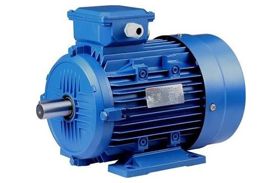 General Purpose Industrial Motor (Induction Motors ) |
IS 15999, IS 12615 and Schedule 6 | BEE registration is mandatory for General Purpose Industrial Motors, including Induction Motors, with a rated capacity of 0.75 kW to 375 kW under the Energy Conservation Act, 2001, in India. These regulations were implemented to promote energy efficiency and conservation in the industrial sector. The BEE has developed a star rating system for Industrial Motors, which ranges from 1 to 5 stars. This rating system indicates the energy efficiency of the motor, with 5 stars indicating the highest level of energy efficiency. The rating system takes into account factors such as motor efficiency, power factor, and energy losses. It is recommended that industries opt for BEE certified motors with higher star ratings, as they consume less energy, thereby reducing electricity bills and lowering carbon emissions. The use of energy-efficient motors can also lead to improved productivity and reduced maintenance costs. |
| 14 | 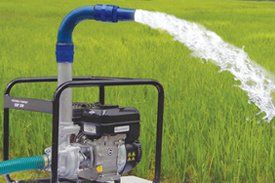 Submersible Pump Set / Agricultural Pump Sets |
IS 9079, IS 8034, IS 14220, IS 11346 and Schedule 7 | BEE registration is not mandatory for Submersible Pump Sets or Agricultural Pump Sets in India. However, the BEE does have voluntary energy efficiency labeling programs for these products. The BEE has developed a star rating system for Agricultural Pump Sets, which ranges from 1 to 5 stars. The rating system takes into account the hydraulic and electrical efficiency of the pump set. It is important to note that the rating is for the pump set as a whole, including the motor and the pump, and not just the motor. While BEE registration is not mandatory for Submersible Pump Sets or Agricultural Pump Sets, it is recommended that consumers opt for products with higher star ratings to achieve energy efficiency and save on electricity bills. Using energy-efficient pump sets can also lead to reduced maintenance costs and improved productivity. |
| 15 | 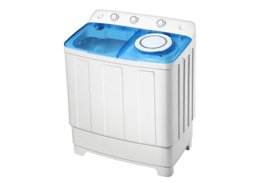 Washing Machine (Semi/Top Load/Front Load) |
IS 302-2-7, IEC 60456 and Schedule 12 | BEE registration is mandatory for washing machines in India with a rated capacity of up to 10 kg under the Energy Conservation Act, 2001. This regulation was implemented to promote energy efficiency and conservation in the household sector. The BEE has developed a star rating system for washing machines, which ranges from 1 to 5 stars. This rating system indicates the energy efficiency of the washing machine, with 5 stars indicating the highest level of energy efficiency. The rating takes into account factors such as water consumption, energy consumption, and wash performance. It is recommended that consumers opt for BEE certified washing machines with higher star ratings, as they consume less energy and water, thereby reducing electricity and water bills. The use of energy-efficient washing machines can also help reduce the environmental impact by lowering carbon emissions. |
| 16 | 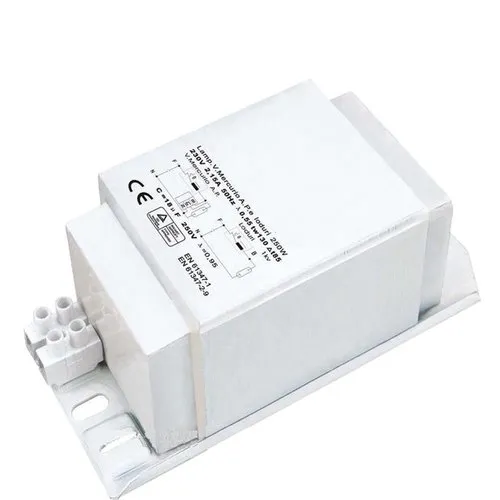 Ballast (Electronic / Magnetic) |
IS 1534-1, IS 13021, IS 15885-2-8, IS 14700-3-2, IS16873-5 and Schedule 15 | BEE registration is mandatory for electronic ballasts used with fluorescent lamps and tube lights under the Energy Conservation Act, 2001, in India. However, magnetic ballasts are exempted from BEE registration. The BEE has developed a star rating system for electronic ballasts, which ranges from 1 to 5 stars. This rating system indicates the energy efficiency of the ballast, with 5 stars indicating the highest level of energy efficiency. The rating takes into account factors such as power consumption, efficiency, and power factor. It is recommended that consumers opt for BEE certified electronic ballasts with higher star ratings, as they consume less energy, thereby reducing electricity bills and carbon emissions. Using energy-efficient electronic ballasts can also help improve the life of the lamp and reduce the flicker and noise produced by the lamp. Magnetic ballasts are not included in the BEE's labeling program as they are less energy-efficient than electronic ballasts. It is recommended to upgrade to electronic ballasts for better energy efficiency. |
| 17 | 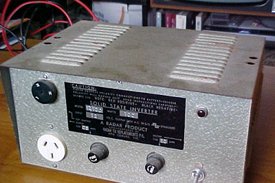 Solid State Inverter |
IS 13314 and Schedule 17 | BEE registration is not mandatory for Solid State Inverters in India. However, the BEE has a voluntary energy efficiency labeling program for Inverters and Inverter Air Conditioners, which provides information on the energy efficiency of the product. The labeling program rates Inverters on a scale of 1 to 5 stars, with 5 stars indicating the highest level of energy efficiency. The rating takes into account factors such as power consumption, efficiency, and power factor. Inverter Air Conditioners are rated separately based on their cooling capacity. While BEE registration is not mandatory for Solid State Inverters, it is recommended that consumers opt for products with higher star ratings to achieve energy efficiency and save on electricity bills. Using energy-efficient Inverters can also lead to reduced maintenance costs and improved productivity. |
| 18 | 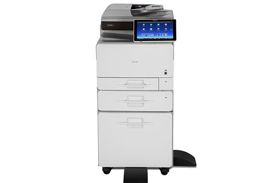 Office Automation Products (Printer, Copier, Scanner, MFD ) |
Schedule 16 | BEE registration is not mandatory for office automation products such as printers, copiers, scanners, and multifunction devices (MFDs) in India. However, the BEE has a voluntary energy efficiency labeling program for these products. The labeling program rates office automation products on a scale of 1 to 5 stars, with 5 stars indicating the highest level of energy efficiency. The rating takes into account factors such as power consumption, energy efficiency, and standby power consumption. While BEE registration is not mandatory for office automation products, it is recommended that consumers opt for products with higher star ratings to achieve energy efficiency and save on electricity bills. Using energy-efficient office automation products can also lead to reduced maintenance costs and improved productivity. |
| 19 | 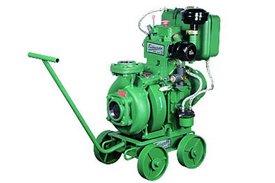 Diesel Engine Driven Monoset Pumps for Agricultural Purposes |
Schedule 13 | BEE registration is not applicable to Diesel Engine Driven Monoset Pumps for Agricultural Purposes in India as they do not fall under the scope of the Energy Conservation Act, 2001. The BEE registration program is applicable only to certain energy-intensive products such as air conditioners, refrigerators, washing machines, and lighting products. The program is aimed at promoting energy efficiency and reducing energy consumption in India. However, it is recommended that consumers opt for energy-efficient pumps, including diesel engine-driven monoset pumps, to achieve cost savings and reduce environmental impact. The use of energy-efficient pumps can also help in improving the overall efficiency of agricultural operations. Therefore, if you are looking to purchase a diesel engine-driven monoset pump for agricultural purposes in India, it is important to look for energy-efficient models from reputable manufacturers and suppliers. |
| 20 | 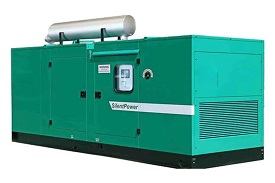 Diesel Generator Set |
IS 10000, IS 10001, IS 13364, IS 4889 and Schedule 18 | BEE registration is not applicable to Diesel Generator Sets (DG sets) in India as they do not fall under the scope of the Energy Conservation Act, 2001. The BEE registration program is applicable only to certain energy-intensive products such as air conditioners, refrigerators, washing machines, and lighting products. The program is aimed at promoting energy efficiency and reducing energy consumption in India. However, it is recommended that consumers opt for energy-efficient DG sets to achieve cost savings and reduce environmental impact. The use of energy-efficient DG sets can also help in improving the overall efficiency of operations and reducing carbon emissions. In addition to energy efficiency, it is also important to consider factors such as the power rating, reliability, and maintenance requirements when selecting a DG set. Therefore, if you are looking to purchase a DG set in India, it is important to look for energy-efficient models from reputable manufacturers and suppliers, and consider other factors such as power rating and reliability to ensure optimal performance and efficiency. |
| 21 | 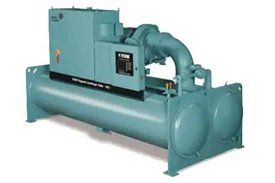 Chillers |
IS 16590 and Schedule 21 | To register chillers for BEE certification, manufacturers or distributors of the chillers would need to ensure that their products meet the energy efficiency standards set by the BEE. This would involve a rigorous testing and certification process, which is carried out by BEE-accredited testing laboratories. Once the chiller has been tested and certified by an accredited laboratory, the manufacturer or distributor can apply to the BEE for a star rating. The BEE will evaluate the test results and issue a star rating accordingly. The star rating system ranges from one to five stars, with five stars being the most energy-efficient. It's worth noting that BEE certification is not mandatory for chillers in India, but it can provide a competitive advantage in certain industries and markets. Additionally, some government and private sector organizations require BEE-certified equipment for procurement, so it's worth considering if you're looking to expand your business in India. |
| 22 | 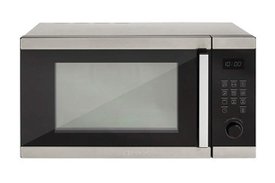 Microwave Ovens |
IS 302-2-25, IEC60705 and Schedule 22 | The Bureau of Energy Efficiency (BEE) has a voluntary program for energy efficiency labeling for microwave ovens in India. The program is designed to encourage manufacturers to produce more energy-efficient microwave ovens and to help consumers make informed purchasing decisions. Under the program, microwave ovens are rated based on their energy consumption and given a star rating from 1 to 5 stars. A higher star rating indicates a more energy-efficient product. Manufacturers are required to obtain BEE registration for their microwave ovens before they can display the energy efficiency label on their products. To obtain BEE registration, manufacturers need to submit their product specifications and test reports from a BEE-recognized laboratory. The product will be tested for its energy consumption and efficiency, and the manufacturer will be assigned a star rating based on the results. It's worth noting that BEE registration for microwave ovens is currently voluntary, but it's likely that it will become mandatory in the near future. This is in line with the Indian government's efforts to promote energy efficiency and reduce carbon emissions in the country. |
| 23 | 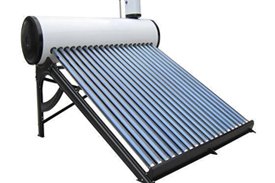 Solar water Heater |
IS 12933, IS 16368, IS 16544 and Schedule 23 | The Bureau of Energy Efficiency (BEE) has a voluntary program for energy efficiency labeling for solar water heaters in India. The program is designed to encourage manufacturers to produce more energy-efficient solar water heaters and to help consumers make informed purchasing decisions. Under the program, solar water heaters are rated based on their energy efficiency and given a star rating from 1 to 5 stars. A higher star rating indicates a more energy-efficient product. Manufacturers are required to obtain BEE registration for their solar water heaters before they can display the energy efficiency label on their products. To obtain BEE registration, manufacturers need to submit their product specifications and test reports from a BEE-recognized laboratory. The product will be tested for its energy consumption and efficiency, and the manufacturer will be assigned a star rating based on the results. BEE registration for solar water heaters is currently voluntary, but it's likely to become mandatory in the near future. This is in line with the Indian government's efforts to promote the use of renewable energy sources and reduce carbon emissions in the country. |
| 24 | 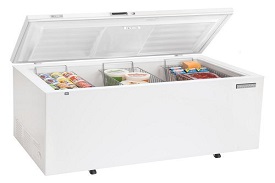 Deep Freezers |
IS 7872 and Schedule - 25 | The Bureau of Energy Efficiency (BEE) has a voluntary program for energy efficiency labeling for deep freezers in India. The program is designed to encourage manufacturers to produce more energy-efficient deep freezers and to help consumers make informed purchasing decisions. Under the program, deep freezers are rated based on their energy consumption and given a star rating from 1 to 5 stars. A higher star rating indicates a more energy-efficient product. Manufacturers are required to obtain BEE registration for their deep freezers before they can display the energy efficiency label on their products. To obtain BEE registration, manufacturers need to submit their product specifications and test reports from a BEE-recognized laboratory. The product will be tested for its energy consumption and efficiency, and the manufacturer will be assigned a star rating based on the results. It's worth noting that BEE registration for deep freezers is currently voluntary, but it's likely that it will become mandatory in the near future. This is in line with the Indian government's efforts to promote energy efficiency and reduce carbon emissions in the country. |
| 25 | -by-brand-liaison.jpg) Light Commercial AC Fixed Speed |
IS 1391 (Part 2) | The Bureau of Energy Efficiency (BEE) has a mandatory program for energy efficiency labeling for light commercial air conditioners with fixed-speed compressors in India. The program is designed to encourage manufacturers to produce more energy-efficient air conditioners and to help consumers make informed purchasing decisions. Under the program, light commercial air conditioners with fixed-speed compressors are rated based on their energy efficiency and given a star rating from 1 to 5 stars. A higher star rating indicates a more energy-efficient product. Manufacturers are required to obtain BEE registration for their light commercial air conditioners before they can display the energy efficiency label on their products. To obtain BEE registration, manufacturers need to submit their product specifications and test reports from a BEE-recognized laboratory. The product will be tested for its energy consumption and efficiency, and the manufacturer will be assigned a star rating based on the results. It's important to note that the BEE registration program for light commercial air conditioners with fixed-speed compressors is mandatory, and it's a legal requirement for manufacturers to comply with the program. This is in line with the Indian government's efforts to promote energy efficiency and reduce carbon emissions in the country. |
| 26 | -Televisions-by-brand-liasion.jpg) Ultra-High Definition (UHD) Televisions |
IS 616, IEC 62087 | The Bureau of Energy Efficiency (BEE) has a voluntary program for energy efficiency labeling for Ultra-High Definition (UHD) Televisions in India. The program is designed to encourage manufacturers to produce more energy-efficient UHD televisions and to help consumers make informed purchasing decisions. Under the program, UHD televisions are rated based on their energy consumption and given a star rating from 1 to 5 stars. A higher star rating indicates a more energy-efficient product. Manufacturers are required to obtain BEE registration for their UHD televisions before they can display the energy efficiency label on their products. To obtain BEE registration, manufacturers need to submit their product specifications and test reports from a BEE-recognized laboratory. The product will be tested for its energy consumption and efficiency, and the manufacturer will be assigned a star rating based on the results. It's worth noting that BEE registration for UHD televisions is currently voluntary, but it's likely that it will become mandatory in the near future. This is in line with the Indian government's efforts to promote energy efficiency and reduce carbon emissions in the country. |
| 27 | 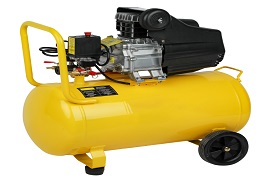 Air Compressors |
IS 5456 | The Bureau of Energy Efficiency (BEE) has a voluntary program for energy efficiency labeling for air compressors in India. The program is designed to encourage manufacturers to produce more energy-efficient air compressors and to help consumers make informed purchasing decisions. Under the program, air compressors are rated based on their energy consumption and given a star rating from 1 to 5 stars. A higher star rating indicates a more energy-efficient product. Manufacturers are required to obtain BEE registration for their air compressors before they can display the energy efficiency label on their products. To obtain BEE registration, manufacturers need to submit their product specifications and test reports from a BEE-recognized laboratory. The product will be tested for its energy consumption and efficiency, and the manufacturer will be assigned a star rating based on the results. It's worth noting that BEE registration for air compressors is currently voluntary, but it's likely that it will become mandatory in the near future. This is in line with the Indian government's efforts to promote energy efficiency and reduce carbon emissions in the country. |
| 28 | 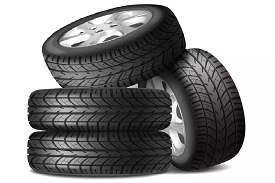 Tyres/Tires |
IS 15633 | The Bureau of Energy Efficiency (BEE) has a voluntary program for energy efficiency labeling for air compressors in India. The program is designed to encourage manufacturers to produce more energy-efficient air compressors and to help consumers make informed purchasing decisions. Under the program, air compressors are rated based on their energy consumption and given a star rating from 1 to 5 stars. A higher star rating indicates a more energy-efficient product. Manufacturers are required to obtain BEE registration for their air compressors before they can display the energy efficiency label on their products. To obtain BEE registration, manufacturers need to submit their product specifications and test reports from a BEE-recognized laboratory. The product will be tested for its energy consumption and efficiency, and the manufacturer will be assigned a star rating based on the results. It's worth noting that BEE registration for air compressors is currently voluntary, but it's likely that it will become mandatory in the near future. This is in line with the Indian government's efforts to promote energy efficiency and reduce carbon emissions in the country. |
| 29 | 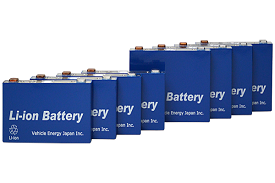 High Energy Li-Battery |
ISO 12405- Part (4) | The Bureau of Energy Efficiency (BEE) does not currently have a specific program for energy efficiency labeling or registration for High Energy Li-Battery in India. However, BEE has several other energy efficiency labeling programs for various products, such as refrigerators, air conditioners, fans, and more. That being said, the government of India has recently launched the National Programme on Advanced Chemistry Cell (ACC) Battery Storage with an aim to promote the domestic production of high energy density lithium-ion batteries. The program includes setting up of Giga factories for manufacturing ACC battery storage in India and providing incentives to the industry to set up these factories. The program also includes the development of a testing and certification infrastructure for ACC batteries. The testing and certification infrastructure may involve the BEE or other authorized agencies to ensure the quality and efficiency of ACC batteries produced in the country. As of now, there is no specific information available on the involvement of BEE in the testing and certification of high energy Li-batteries. |